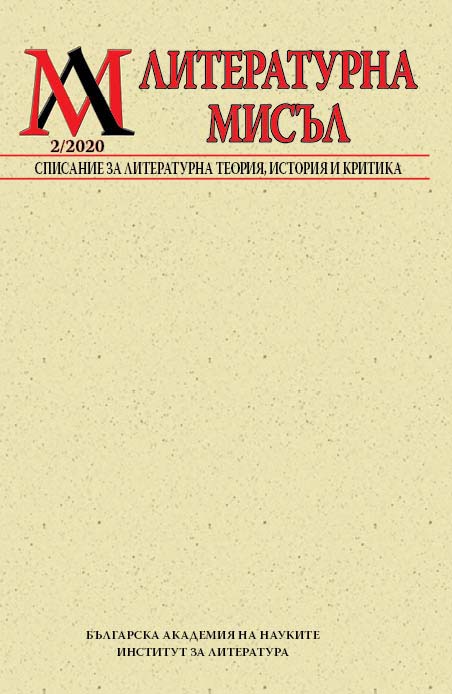Ботев contra Пишурката, или силните жестове на слабите гласове
Botev contra Pishurkata, or the Strong Gestures of the Weak Voices
Author(s): Plamen AntovSubject(s): Theatre, Dance, Performing Arts, Language and Literature Studies, Studies of Literature, History of ideas, Bulgarian Literature
Published by: Институт за литература - БАН
Keywords: ideology; Erzieher; theater/mise-en-scène/sceneries/play vs literary/word; naive-folk vs modern thinking
Summary/Abstract: The article starts from two translations of historical (Roman) dramas during the Bulgarian Revival – “Belisarius“ and “Cremutius Cordus“ – and two theatrical performances – “Long-suffering Genoveva“ and “Belisarius“ (Lom, 1856) – to discuss the problem of ideological effectiveness of theater during the Revival epoch compared to literature. Theatrical performance in its entirety (mise-en-scène, sceneries, properties, and especially the “alive“ play) is seen as essential, languagelly relevant to the voluminous, multi-layered naive-folk thinking, pre-aesthetic and prehistoric, as opposed to the flat ideological logos of the modern one. – The unpretending, weak writer and theatrical worker Kr. Pishurka is the personification of the first type of thinking, and Botev – the genius of the epoch – of the second type.
Journal: Литературна мисъл
- Issue Year: 63/2020
- Issue No: 2
- Page Range: 3-18
- Page Count: 16
- Language: Bulgarian
- Content File-PDF

